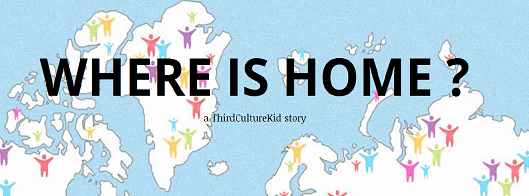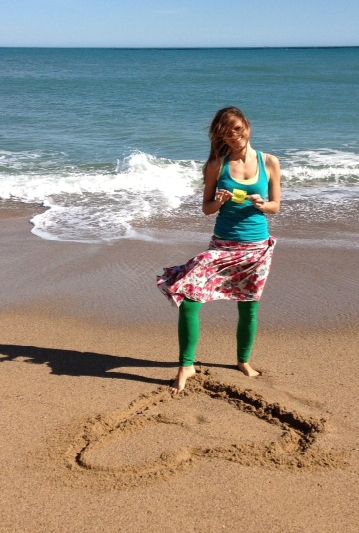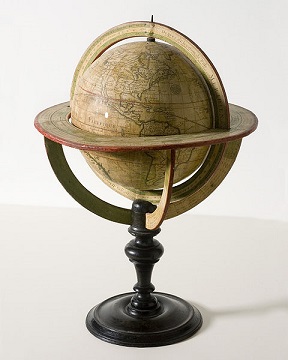“A Third Culture Kid (TCK) is a person who has spent a significant part of his or her developmental years outside the parents’ culture,” so US American sociologist David C. Pollock.
Aspiring film-maker Aga Alegra and her international, multi-cultural team are now trying to explore the lives of TCKs in the upcoming documentary “Where Is HOME?” We have interviewed the director below, and you can find more information about their project and their fundraising campaign on the dedicated movie website.
1. Tell us a bit about your background. You are obviously a Third Culture Kid yourself. What was your childhood like?
Yes! I am indeed a Third Culture Kid (TCK), although I don’t fall into any of the main categories (many TCKs have parents who are employed in the military, missionary, diplomatic, or business sectors).
My life as a TCK began at age 12, when my parents escaped Communist Poland, and I suddenly found myself in a refugee accommodation in Hamburg, Germany. It was there, among new friends, that I first learned to see that friendships extend beyond the boundaries of languages and cultures. However, I did learn to speak Farsi and Spanish during the two years that I spent with my multicultural “family” there.
2. How exactly did you get the idea to talk about your life (and the lives of other TCKs) in the form of a movie? Do you have any previous experience in film-making?
 This is my first film, and in many ways the project began very fortuitously!
This is my first film, and in many ways the project began very fortuitously!
In fact, I didn’t even discover that I was a TCK until I hit 30. This was a point in my life when I longed desperately to be content with my decision to settle down in Toronto and start a family, and yet I had to constantly fight the feelings of restlessness inside of me. I felt so alone in my struggle that I actually turned to Google for an explanation, and that’s how I first came across the TCK community. I was hit with an overwhelming sense of having found my “tribe”! I would say that was my moment of inspiration when my passion to tell our story first began.
When I began filming, I didn’t plan at all to talk about my own TCK experience. I was on a personal quest to answer the existential question “Where is home?” and wanted to share what I found with the rest of the world. Because I didn’t have an answer yet, I thought that by talking to other TCKs, I would be able to understand how they came to cope with being uprooted, with feeling torn between many different cultures, and whether or not they were able to find “HOME” while remaining in constant motion. That’s how the documentary began to take shape as a narrative exploring the lives of four other TCKs – Warona, Maartje, As’ad, and Ray.
But then I moved to Barcelona in the middle of making the film, had to start life afresh, and began to literally live through all the stages of answering “Where is home?” myself. And so that’s how my own story came to be a part of the film. Even though it was a difficult decision for me to expose my story in front of the camera, I hope that it will resonate with everyone who watches the film and shares a similar sense of wanderlust.
3. How many other TCKs did you interview for this project? Did you “shadow” them in their lives? How did you find them? And what about your crew-members? Are they TCKs, too?
The documentary features four main characters, and I also filmed five other TCKs. Most of their stories are told in narrative form, but I did interview one of the main characters over the course of several months when he was in the transition phase of moving from Canada to Asia. But that’s just the tip of the iceberg! 
I also interviewed more than 20 TCKs on the phone, and I have heard from so many TCKs over the course of the last four years. In the beginning, I connected with other TCKs through forums such as TCKid and by posting ads, but a lot of them reached out to me after I posted my short film to YouTube. Some have become my very close friends.
Alethea, my production assistant, and I met because of the film! And some of my other crew-members are also TCKs.
4. In which countries did you shoot the footage? What’s your favorite memory of filming? And what was the hardest part about the project?
We filmed in Canada (Toronto, Montreal, and Vancouver), as well as Trinidad & Tobago, Spain, and Germany. The most valuable thing I gained from filming was the wonderful friendships I have made through connecting with the people I met or interviewed for the film.
Of course, getting to film in all those different locations was a definite perk … I love experiencing new cultures firsthand! As I hadn’t expected to be able to go to Trinidad & Tobago, I have to say that visiting that beautiful island stands out as one of my favorite memories.
As for the hardest part, learning all the ins and outs of film-making truly is an on-going process, and running a project on a limited budget has been challenging as well. But this truly is a project of passion, and so we’re ready to weather all the ups and downs!
5. How are you planning to distribute, promote, and screen the finished movie?
Distribution will mostly be through DVD production and sales. As our aim is to produce a high-quality product, we are looking to source DVD encoding and mastering to a professional company.
As for promotion, this is an ongoing process for us. We are trying to network with any like-minded international organizations who we feel have an audience that would love our film (and hopefully be inspired by it!). We’re already connected with the TCK community at large, and we’re so happy to be featured on InterNations!
As for screening – once the film is complete, our first goal is to submit it to film festivals. So the premiere will hopefully be at a major international film festival. As for future screenings, we are happy to organize screening events around the world. 
We just wrapped up our Indiegogo campaign, through which we were able to raise some funds to kickstart the post-production process. At this point, we anticipate a release date for the film in June of 2013.
With any independent film, the quality of the end product depends so much on what the overall budget is, which is why any further donations we get are so invaluable to us. We hope to be able to raise another $19,000 in order to really compete in film festivals on the international level. We have so much beautiful footage and we truly believe that the message of our film will help to inspire others to see the world as one united community regardless of where “HOME” is, so we’re keeping our fingers crossed!
6. And finally: what’s the best thing about being a TCK for you? And what is the more negative side?
The best thing about being a TCK is the ability to feel at home anywhere in the world and the ability to easily connect with everyone on this beautiful planet. Because we’ve had to learn to recreate a sense of community for ourselves with each move as a child, by the time we reach adulthood this becomes second nature for many TCKs. And since we are generally the odd-ones-out in each new community, we’ve had to quickly find common ground in order to understand those around us.
Also, I don’t think I’d know how to speak seven languages if I hadn’t had the experience of growing up amongst many cultures.
It’s hard to say that there is a negative side because I am so grateful for my TCK experience! Of course, there is the innate restlessness, and there is always a sense of loss in having to say goodbye to people and places. However, with each passing day I’ve learned to embrace the restlessness a little bit more and simply accept the curious and open-minded side of myself.
(Photo credits: 1) Where Is Home? – The Film: Official Website, by Alethea Wang 2) Where Is Home? – The Film: Official Facebook Page, by Aga Alegra 3) De l’Isle globe (1765), by Wikimedia Commons user Mnhs)
I have 4 TCKs at home, and I love every part of them that makes them who they are. They were born in Brazil, Czech Rep and China and never lived in my home country. Home is were ever they love to be. For now, at a young age, home is were we are happy together as a family. They enjoy cultural and natural diversity, they are learning to appreciate de difference in life.
I myself feel a little bit like Aga, I left my home country 14 years ago and I don’t feel like I want to go back. I am happy were I am. I created a company with a friend, a TCK herself, that embraces all that we like, diversity, culture, nature, heritage, people. Aga, I will be more than happy to promote you on the website blog. ( http://www.lullaboo-vphn.com ) Please contact me if you are interested.
I will be anxiously waiting to watch your documentary!
@Veronica:
I’m afraid that Aga is not a regular contributor on our blog, so she might not see your comment. If you would like to get in touch with her, maybe you should try the official Facebook page of her film project:
https://www.facebook.com/whereishomethefilm
To answer these and other related questions, four of us have undertaken a research project on adult-TCKs who are between 25 and 90, who currently reside in the United States. and who spent at least one school-age year abroad as the minor dependent of an American parent.
You might find my book on Global Cosmopolitans, The Creative Edge of Difference very relevant. It is based on the stories of people leading global lives, many of whom are tkk.
Thanks a lot for the tip, Linda! I will look up your publication on Amazon – it does sound really relevant for today’s “global minds”.
I consider myself TCK as I left my native south east asia by 13- 14 and since then I live in India, and Europe and then Asia, and now I am turning 30yrs. Yes, definitely I am very aware and sensitive on culture and sometimes I feel I am unique or other time I feel lonely, different phases and emotions in context of experiencing various cultures and society. I would like to settle down somewhere but I dont know yet, I guess love could be the answer.
I grew up as a military brat and was an exchange student. One of the confusing parts of growing up this way is that you never feel like you have a real home. Lots of places that were cool adventures.
My brother was telling me that he read an article about this feeling among military kids and that you can tell which place is home by your decision as to where you want your final resting place to be.
I spent years trying to figure this out. No where felt like home, even the place I have lived for the last 20 years. Then I went back to one of these places and immediately knew that was home.
I cannot wait to see this film. My kids are TCKs. Since the eldest was 3 we have moved to 3 different countries. To cultures quite different from our own. We are about to return to our home country. We are excited but apprehensive. Nevertheless, we have become people who seek change, love difference and assimilate into other cultures readily so hopefully we can settle down?About to board yet another plane heading “home” to Indonesia before going home finally.. To UK.
Fantastic at last we have a documentary on Third Culture Kids. I had lived in Europe, Africa and the Americas by the time I was twenty. It was and still is an amazing experience. Our children have also been exposed to the world and different cultures, by growing up in Europe, America and New Zealand. But I am finding it challenging to settle down at fifty years of age. So I do think it is important for citizens of the world to know how to feel more settled as they get older. How to be accepted into different pockets of cultures that have grown up together. What to say and not what to say, since you can be considered as a bragger. Creating your own group of International friends, that feel the same way as you do. As a TCK, and as an TCA, you are definately able to cope and be more flexible as a transient. Good luck on your new project.
U learn to adjust & compensate. U learn to mimic & U become very aware of the culture around U, and U consume some & tolerate others. Eventually U adopt aspects of cultures & eventually U go home. What is truth.. U R the better, U feel sometimes alone, & U feel sometimes unique. Not so different to life in general. These % of the global population provide the diversity & growth that humanity needs to become a global community.. no different to smaller communities. Do we need to be a global community? U still experience xenophobia, discrimination, hatred. U feel U can only be part of a smaller % of like minded. & finally, sometimes U feel you’ve lost a sense of community & the depth of comprehension, of feeling, of really understanding others or others understanding you.
I am very interested in this documentary because in spite of not considering me a TCK, I feel like being one, and now my kids are, and sometimes I feel confused if when they grow up what kind of feelings they will have about that, and I worries me the most is about their education.
I would like so much to see the movie and let them watch it too, I think it will help them in the future